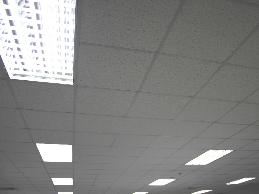On This Page
About Vertigo
Vertigo is the sensation of spinning, whirling, or dizziness caused by a disturbance in balance. Vertigo can be described as either subjective or objective. An individual who experiences objective vertigo may feel like things in her environment are moving, while an individual with subjective vertigo feels as if she is moving. Vertigo can be caused by Meniere’s Disease, viral infections, central nervous system disorders such as stroke, migraines, multiple sclerosis, head trauma, acoustic neuroma (tumor), cardiovascular disorders, and sharp changes in blood pressure.
Vertigo can impact a person’s ability to work. Individuals with vertigo may be limited in activities such as getting out of bed; walking; traveling; working around moving objects, under bright or fluorescent lights, or at heights; climbing ladders; viewing a computer monitor; or working in an environment that has many colors or patterns (e.g., a patterned carpet).
Vertigo and the Americans with Disabilities Act
The ADA does not contain a definitive list of medical conditions that constitute disabilities. Instead, the ADA defines a person with a disability as someone who (1) has a physical or mental impairment that substantially limits one or more "major life activities," (2) has a record of such an impairment, or (3) is regarded as having such an impairment. For more information about how to determine whether a person has a disability under the ADA, see How to Determine Whether a Person Has a Disability under the Americans with Disabilities Act Amendments Act (ADAAA).
Accommodating Employees with Vertigo
People with limitations from vertigo may develop some of the limitations discussed below, but seldom develop all of them. Also, the degree of limitation will vary among individuals. Be aware that not all people who are aging will need accommodations to perform their jobs and many others may only need a few accommodations. The following is only a sample of the possibilities available. Numerous other accommodation solutions may exist.
Questions to Consider:
- What limitations is the employee experiencing?
- How do these limitations affect the employee and the employee’s job performance?
- What specific job tasks are problematic as a result of these limitations?
- What accommodations are available to reduce or eliminate these problems? Are all possible resources being used to determine possible accommodations?
- Once accommodations are in place, would it be useful to meet with the employee to evaluate the effectiveness of the accommodations and to determine whether additional accommodations are needed?
- Do supervisory personnel and employees need training?
Key Accommodations
- Providing structured breaks as a physical outlet
- Reducing stress triggers – these strategies will vary according to triggers, but see Dealing with Stress in the Workplace
- Adjusting supervisory methods
- Accessing EAP services for coping with stress
- Providing a private workspace
- Reducing distractions
- Allowing breaks for mental fatigue, including short walks, getting up for a drink of water, and rotating through varied tasks
- Allowing breaks to contact a support person when anxiety is triggered
- Restructuring job so the most difficult tasks are performed at the time of day the employee has the most mental energy or stamina
- Providing/designating uninterrupted time for tasks that require significant concentration
- Telework, Work from Home, Working Remotely
Accommodation Ideas:
Situations and Solutions:
The following situations and solutions are real-life examples of accommodations that were made by JAN customers. Because accommodations are made on a case-by-case basis, these examples may not be effective for every workplace but give you an idea about the types of accommodations that are possible.






